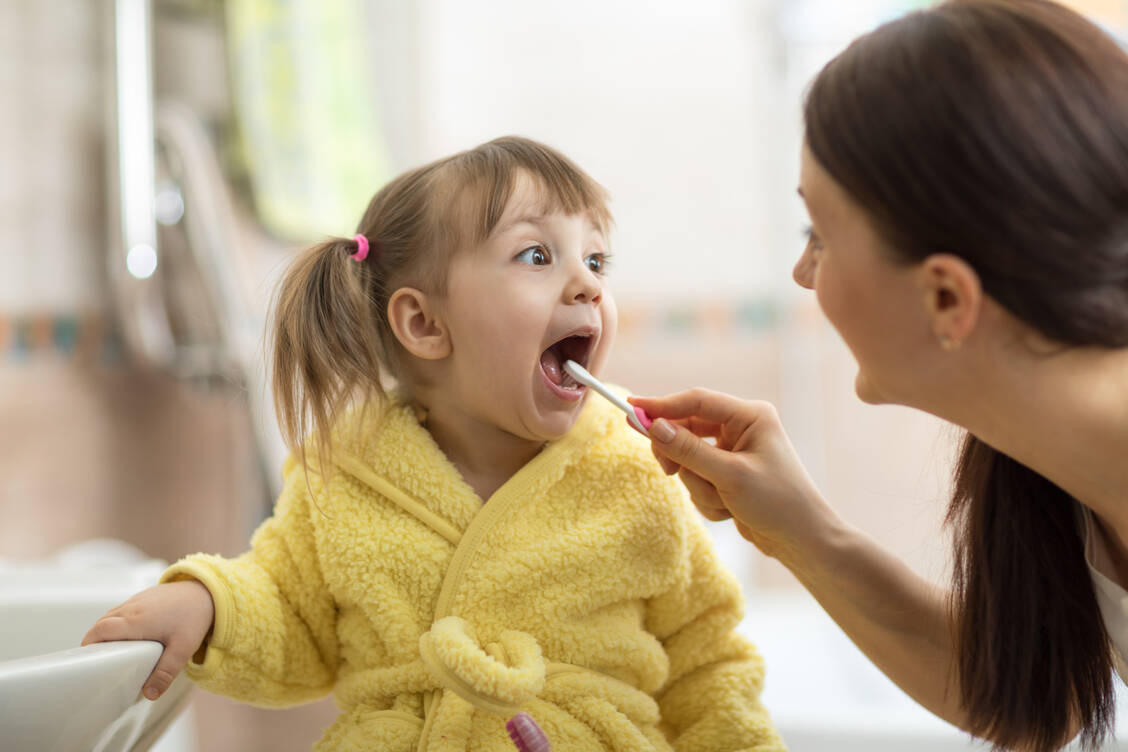The German Oral Health Study shows that caries in children and adolescents has been steadily decreasing since the 1980s. Today, around 80 percent of ten-year-olds have caries-free permanent teeth. This not only saves children unpleasant visits to the dentist, but also increases the chance that their teeth will remain healthy as they grow older. According to the 5th German Oral Health Study, prevention-oriented dental care, which has developed strongly in Germany especially in the last 30 years, is responsible for the ever-improving oral health. For example, children today are entitled to their first of a total of six early detection examinations at the dentist already at baby age. The main focus here is on how to keep teeth healthy. Parents receive tips on how to brush their teeth, how to provide fluoride and how to eat a healthy diet. Depending on the caries risk, the teeth can also be coated with a fluoride varnish to increase caries protection.







